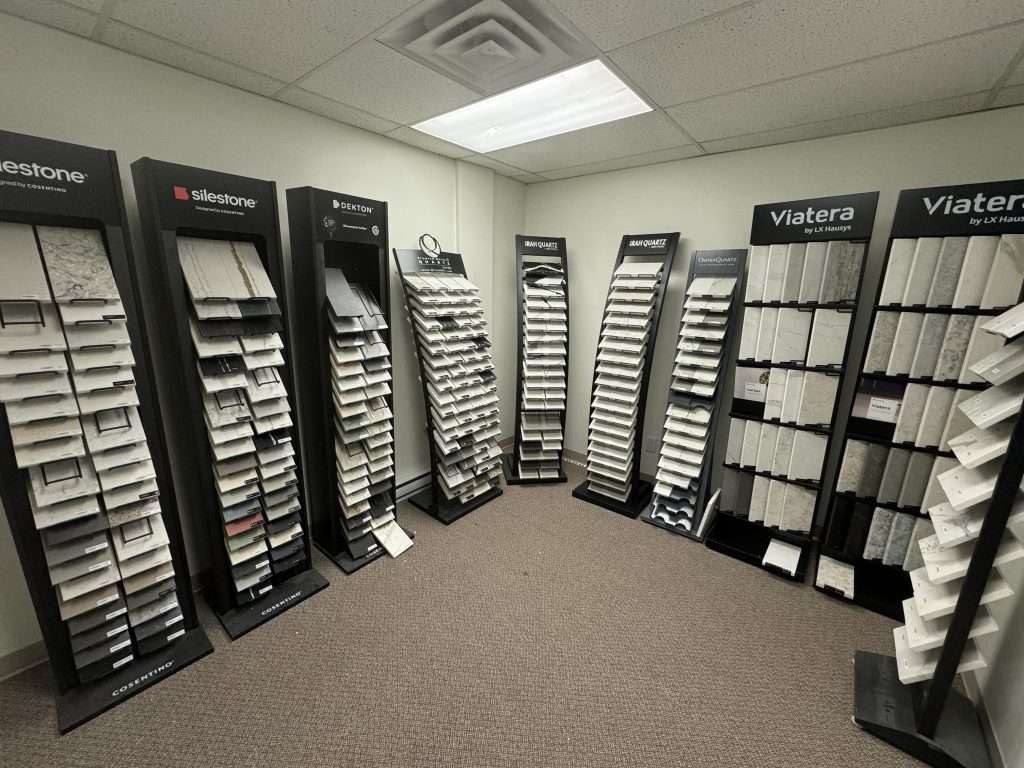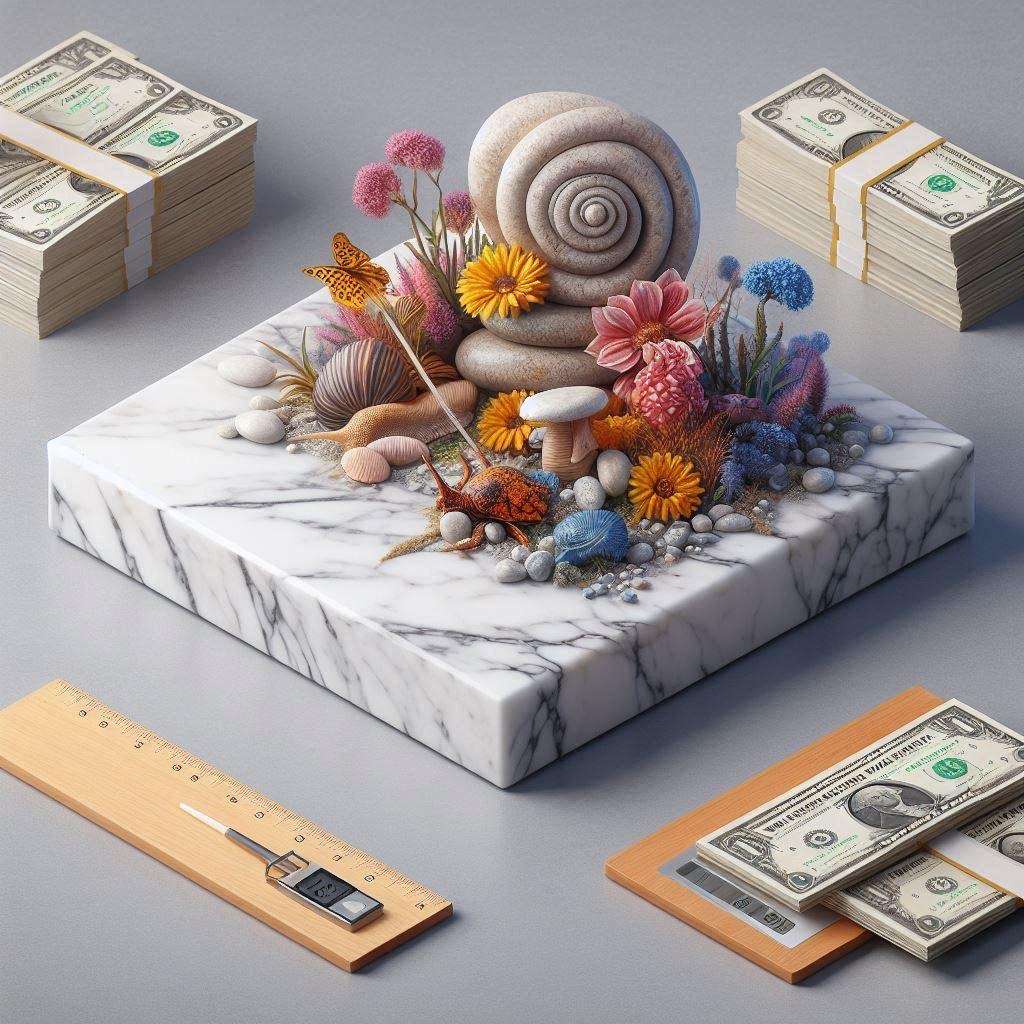The Fascinating Process of Manufacturing Engineered Quartz Countertops.
Engineered quartz countertops have become a popular choice for homeowners due to their durability, aesthetics, and versatility. But have you ever wondered how these stunning countertops are created? Let’s delve into the fascinating process of manufacturing engineered quartz countertops.
Introduction
The Rise of Quartz Countertops
In recent years, quartz countertops have gained immense popularity among homeowners and designers. They offer the perfect blend of aesthetics, durability, and low maintenance, making them a top choice for kitchen and bathroom renovations. But have you ever wondered how these beautiful slabs of artificial stone quartz countertops are made? In this article, we’ll dive deep into the fascinating process of creating quartz countertops, from raw materials to installation.
What is Artificial Stone Quartz?
Artificial stone quartz, often simply referred to as quartz, is an engineered stone material made primarily from natural quartz crystals mixed with resins, polymers, and pigments. This combination results in a stunning, non-porous surface that is as durable as it is beautiful. Quartz countertops have become renowned for their resistance to stains, scratches, and heat, making them a preferred choice for busy kitchens and bathrooms.
The Manufacturing Process
Step 1: Raw Materials Selection
The journey of crafting quartz countertops begins with the careful selection of raw materials. High-quality quartz crystals are chosen for their clarity and consistency, ensuring a uniform appearance in the finished product. These crystals are then mined and meticulously cleaned. The essential ingredients for engineered quartz countertops include:
- Crushed Quartz: About 92% of the product consists of crushed quartz, sourced in pre-crushed form. The quantity and size of quartz grit and powder vary, influencing the final appearance.
- Bonding & Curing Chemicals: Un-saturated polyester resin acts as the binding agent, making the quartz rock-hard. Catalyst and accelerator chemicals (1% & 0.1% of resin, respectively) control resin reaction. Dyna-silane (1% of resin) enhances the binding between resin and siliceous materials. These chemicals constitute the remaining 8% + 1% of the slab’s weight.
- Pigments: Inorganic and organic pigments are used to create different colors. Whitening and color pigments provide a broad color palette.
- Miscellaneous Materials: Glass, mirrors, shells, and more can be added to create special effects and elegance in the finished product.
Step 2: Mixing and Coloring
The process involves Vacuum-Vibro Compaction: The raw materials are combined to form a homogeneous mixture. Under vacuum conditions and vibration, this mixture is compacted, ensuring even distribution and eliminating air bubbles.
Step 3: Curing
After molding, the slabs are cured in special ovens at high temperatures. This hardens the resin, making the countertops incredibly durable and resistant to cracking.
Step 4: Polishing and Quality Control
The slabs are then polished to a glossy finish, revealing their true beauty. Quality control experts inspect each slab for imperfections, ensuring that only flawless countertops reach the market.
The Beauty of Engineered Quartz Countertops
Engineered quartz countertops have revolutionized the world of interior design and home improvement. Their stunning appearance, durability, and low maintenance requirements make them the ideal choice for both practical and aesthetic reasons. From classic kitchens to modern bathrooms, engineered quartz countertops enhance the beauty and functionality of any space.
Conclusion
In conclusion, the manufacturing process of engineered quartz countertops is a meticulous and fascinating journey. Starting from the selection of high-quality raw materials to the final polishing and quality control, each step contributes to the creation of beautiful, durable, and versatile countertops that homeowners and designers adore.
1. Are quartz countertops really as durable as they claim to be?
Yes, quartz countertops are exceptionally durable. They are resistant to stains, scratches, and heat, making them a practical choice for high-traffic areas like kitchens.
2. Can engineered quartz countertops be customized in terms of color and design?
Absolutely! Engineered quartz countertops come in a wide range of colors and can even incorporate special effects and patterns by adding miscellaneous materials during the manufacturing process.
3. How does the cost of quartz countertops compare to natural stone options like granite?
While quartz countertops may have a higher upfront cost than some natural stones, they often offer better long-term value due to their durability and low maintenance requirements.
4. Are there any specific maintenance tips for quartz countertops?
Maintaining quartz countertops is easy. Simply clean them with a mild soap and water solution. Avoid harsh chemicals and abrasive scrubbers to preserve their beauty.
5. Can engineered quartz countertops be used outdoors?
Engineered quartz is primarily designed for indoor use. Exposure to UV rays and extreme weather conditions can cause discoloration and damage over time, so it’s best to use them indoors.



